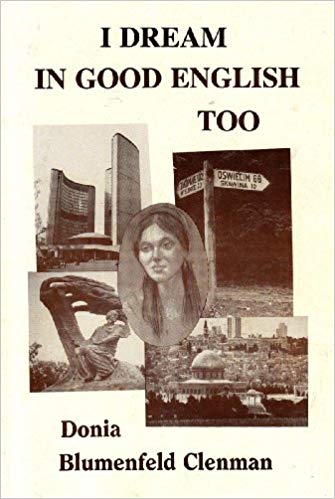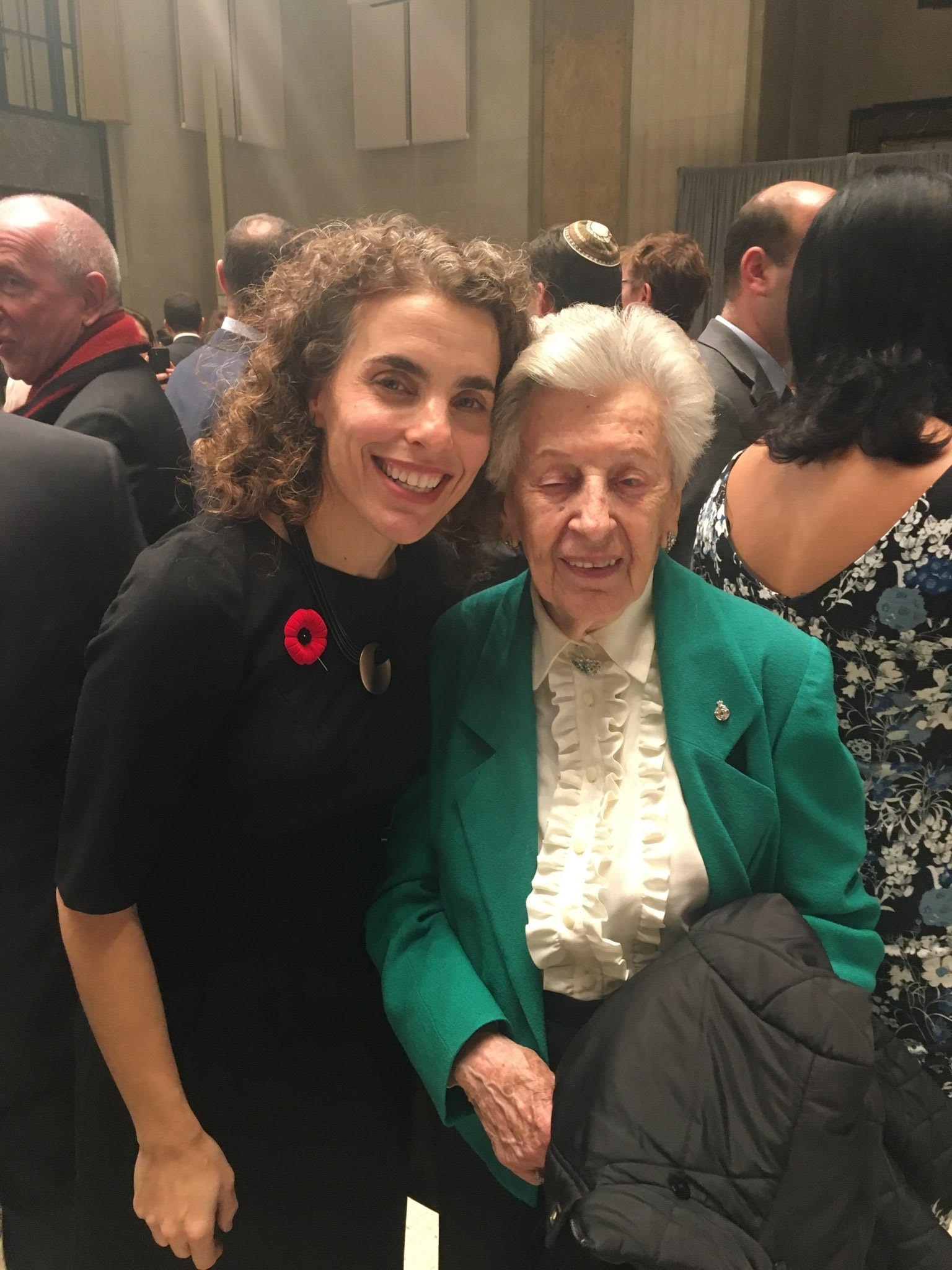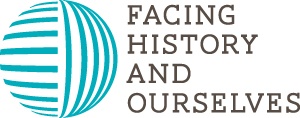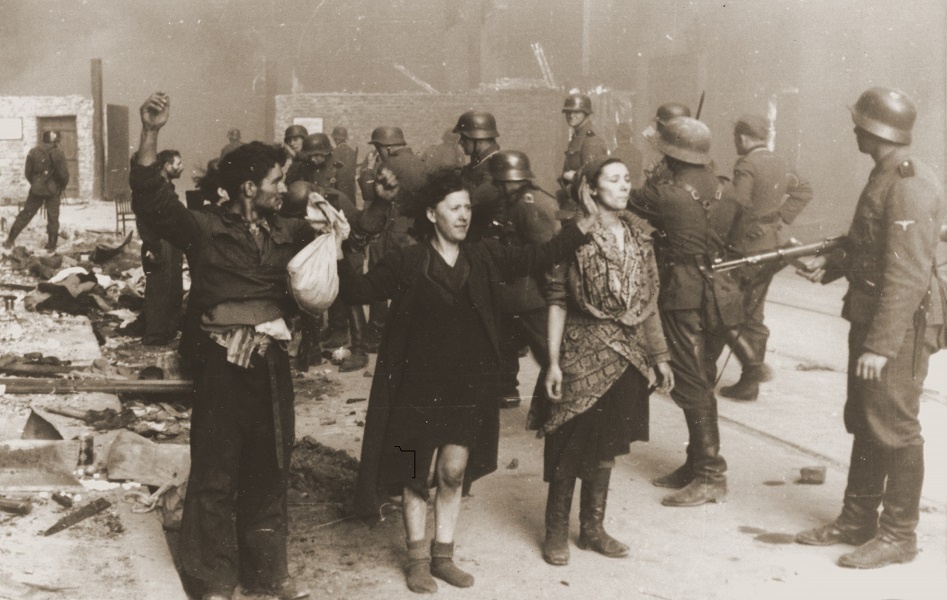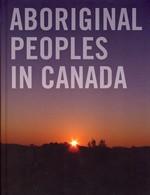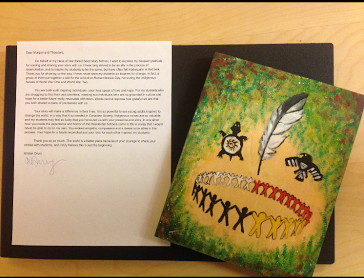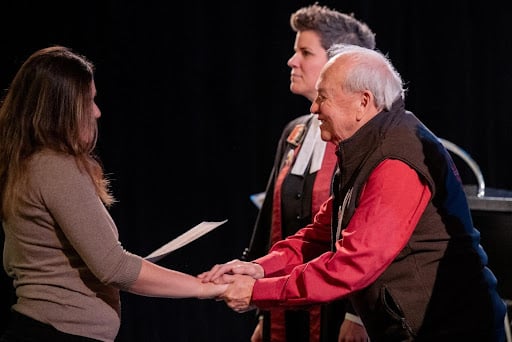
"As Rabbi Jonathan Sacks has written, there is a difference between history and memory: “History is information. Memory, by contrast, is part of identity… Memory is the past as present, as it lives on in me.” Survivors, witnesses, the descendants of those who lived through [histories], and all those who learn about [these histories] today face the question of how to remember the past and how that memory might shape our understanding of ourselves and our present world" (Holocaust and Human Behavior, Facing History and Ourselves, 2017. p. 598).
In his testimony sharing,teaching and life, residential school survivor, and self-described victor, Theodore Fontaine frequently explored how memory lives on in the present: His family’s love, the horrors of residential schooling, the joys of friendship, and the healing power of connection shaped and reshaped his life, his teachings and his works. In so sharing, those who listened became witnesses to his experiences, and many were transformed as a result.
The following interviews build on our event, Learning from Theodore Fontaine: A Call for Lasting Change, and draw on the voices of additional friends and colleagues whose life and work act as living examples of Theodore’s teachings, his legacy and calls to action. We hope that these interviews will prompt deeper learning from Theodore and inspire readers to consider how his testimony and legacies might shape our understanding of ourselves and the choices we make.
To watch his recorded testimony, please check out our blog, Honouring and Remembering Chief Theodore Niizhotay Fontaine.
As you read these interviews:
- What insights do you gain about Theodore’s legacy and his hopes for the future?
- What questions do the interview responses raise for you about yourself or the world around you?
- How do the responses extend or challenge your thinking about the possibilities for living with trauma, hope and healing?
- How are you reflecting on the possibilities for healing, hope and courage after trauma, as you read these reflections?
For Ted, real reconciliation came through everyday acts of generosity and kindness. Our breakfast meetings were often punctuated by Ted recognizing passers-by and stopping them for a quick hello and always a joke... He connected, related, and celebrated their shared existence, and thereby cultivated knowledge and nurtured learning..."
- Andrew Woolford
|
Read More
Topics:
Survivor Testimony,
Canada,
Residential Schools,
Canadian History,
Indigenous History,
Indigenous,
stolen lives,
student activism,
Action
If you have ever travelled to Brantford Ontario Canada, you might have been excited to visit the home of Alexander Graham Bell to learn about the invention of the telephone. You might have come for a hockey tournament and had the privilege of meeting Hockey Legend Wayne Gretzky’s father Walter, who loves hanging out at the rinks. You may have picked up brochures with beautiful pictures of the Grand River or did research about Joseph Brant, who was the negotiator between the Mohawk and British during the American Revolution. But you might not know that Brantford is the home of the first residential school in Canada; that the building still stands with the names of children carved into the bricks and that it is one of the few residential school buildings still standing in Canada.
Read More
Topics:
Art,
Survivor Testimony,
Residential Schools,
Indigenous History,
Culturally Responsive and Relevant Pedagogy,
Indigenous,
Lesson Ideas,
Facing Canada,
Creative,
Woodland Cultural Centre
This spring, Facing History and Ourselves, in partnership with the Azrieli Foundation Holocaust Survivors Memoir Program, invited 175 students from 6 schools to layer onto their learning about the history and legacies of the Holocaust, or of Canada's Residential Schools by reading Survivor memoir. Students read Theodore Fontaine’s Memoir Broken Circle: The Dark Legacy of Indian Residential Schools, or excerpts of Nate Leipciger’s Memoir The Weight of Freedom, then created pieces that reflected their understanding and responses to these testimonies, which were gifted to each Survivor.
Read More
Topics:
Toronto,
Holocaust,
Memoir,
Facing History and Ourselves,
Survivor Testimony,
Canada,
Residential Schools,
Canadian History,
Student Work,
project,
genocide,
Holocaust and Human Behaviour,
reflection,
Connected Learning,
Grade 10 History,
HSB,
CHC,
difficult conversations,
trc,
stolen lives,
facing history pedagogy,
Azrieli Foundation Memoirs,
Decolonizing Schools,
Holocaust History in Canada,
Facing Canada,
cross curricular teaching and learning,
collaborative inquiry
In the Aftermath Project, director Sarah Terry reminds us that war is only half the story: "To be fully informed, we have to know the stories of post-conflict." It is in these stories, "where we are constantly redefining what it means to be human, what it means to live again, to rebuild civil society, to recover from trauma. If we don't know these stories, then we don't really understand the world we live in, and we will repeat history again and again and again." Through her poetry, Holocaust survivor Donia Blumenfeld Clenman conveyed some of these essential stories of the aftermath of genocide. With clarity, humanity and gentleness, her words connect us to her struggles, and teach us what it means to face - and recover - from trauma. In the month of her passing, we remember her legacy and honour her words.
Read More
Topics:
Poetry,
Survivor Testimony,
Judgement and Legacy,
difficult conversations,
Holocaust History in Canada
As part of a Facing History and Ourselves course, educators and students reflect on the power of apology. These apologies are often examined within the context of transitional justice. In Canada our students explore the apology given by the Canadian Government for their role in the establishment of Indian Residential Schools. In advance of a close reading of this apology, students and their teachers consider moments in which they have either given or received a meaningful apology.
Read More
Topics:
Holocaust,
Survivor Testimony,
Holocaust Education,
Holocaust and Human Behaviour,
apologies,
Holocaust History in Canada
Join us on Sunday February 25th for an educator workshop and special film screening with Director Susan G Enberg and Louis Knapaysweet, an elder and survivor of St. Anne's Residential School.
Read More
Topics:
Film,
Survivor Testimony,
Residential Schools,
workshop,
CHC,
difficult conversations,
trc,
stolen lives,
facing history pedagogy,
settler educators
A collaboration between Facing History and Ourselves and the Azrieli Foundation's Holocaust Survivor Memoirs Program, first posted on Azrieli Memoirs' Blog page.
Words referencing mass atrocities of the past, such as fascist, racist, Nazi, genocide and Holocaust, carry deep historical meaning, yet these words are often misused in reference to contemporary events. Using these words too casually not only diminishes the meaning of the words themselves, but also diminishes the events that the words represent. In this blog post, we look to remember the meaning of the term genocide and the conditions that drove a lawyer named Raphael Lemkin to coin this term to describe a horrific crime — a crime that prior to 1944 lacked a name and legal repercussions.
Read More
Topics:
Survivor Testimony,
genocide,
Genocide and Crimes Against Humanities Course,
Holocaust and Human Behaviour,
Grade 10 History,
Azrieli Foundation Memoirs
My name is Angela Nardozi and I am a guest on Turtle Island (what we now call North America), with both sides of my family originating in Italy. I grew up in Markham, Ontario, where I attended Catholic Elementary and Secondary schools. I am a certified teacher, and have spent time living, working, and researching in a Treaty Three First Nation, and my experiences there have propelled me on the path to learn more about Indigenous perspectives on history and current events, and the history and present of colonization on Turtle Island.
Read More
Topics:
Survivor Testimony,
Residential Schools,
Truth and Reconciliation,
Indigenous History,
stolen lives,
settler educators
In order to pursue a conversation about reconciliation in my classroom, and to ensure that my voice as a non-Indigenous teacher does not become louder than the survivors, I constantly strive to include Indigenous voices in my classroom. I want my voice to amplify Indigenous voices, not speak over them, or for them. I was fortunate enough to be given the opportunity through Facing History and Ourselves to have Theodore Fontaine share his experiences with the Canadian Residential School System in my Challenge and Change Grade 12 University class.
Read More
Topics:
Choosing to Participate,
Survivor Testimony,
Truth and Reconciliation,
stolen lives



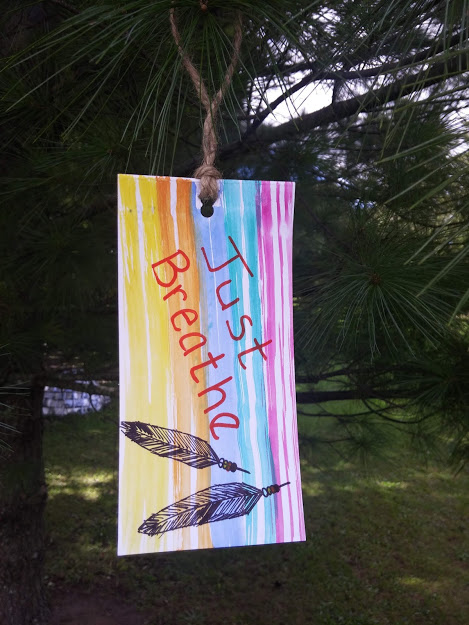
.jpeg)
